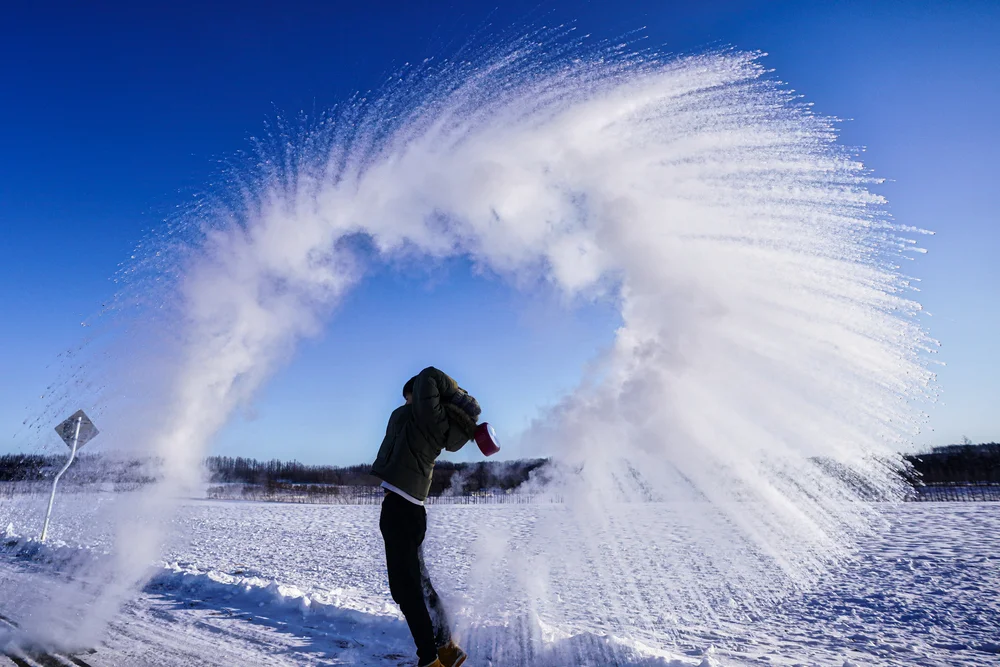Does hot water freeze faster than cold water? Aristotle may have been the first to answer this question, later known as the Mpemba effect. This phenomenon originally referred to the non-monotonic initial temperature dependence of the freezing onset time, but has been observed in various systems, including colloids, and has also come to be known as the mysterious initial condition dependent relaxation phenomenon.
But few had previously investigated the effect in quantum systems. Now, a research team from Kyoto University and Tokyo University of Agriculture and Technology has shown that Mpemba’s temperature quantum effect can be realized in a wide range of initial conditions. Their findings were published in the journal Physical Review Letters.
“The Mpemba quantum effect preserves the memory of the initial conditions that subsequently led to anomalous thermal relaxation,” explains project leader and co-author Hisao Hayakawa of the Yukawa Institute for Theoretical Physics in Kyoto.
Hayakawa’s team prepared two systems with quantum dots connected to a heat bath: one with current flow and the other in steady state. Both were annealed to a low-temperature equilibrium state, allowing the team to trace their temporal evolution to a steady state relative to the density, energy, entropy, and most importantly, temperature matrix.
“We knew we were getting the Mpemba thermal quantum effect when the two replicates crossed each other before reaching the same equilibrium state (so that the hot part became colder as a result of the identity change and vice versa),” says Takada from TUAT.
“After analyzing the quantum master equation, we also found that we achieve the thermal quantum Mpemba effect over a wide variety of parameters, including reservoir temperatures and chemical potentials,” adds first and corresponding author Amit Kumar Chatterjee from KyotoU.
“Our results encourage us to explore the potential use of the quantum Mpemba effect in future applications beyond thermal analysis,” states Hayakawa.
Source: Port Altele
